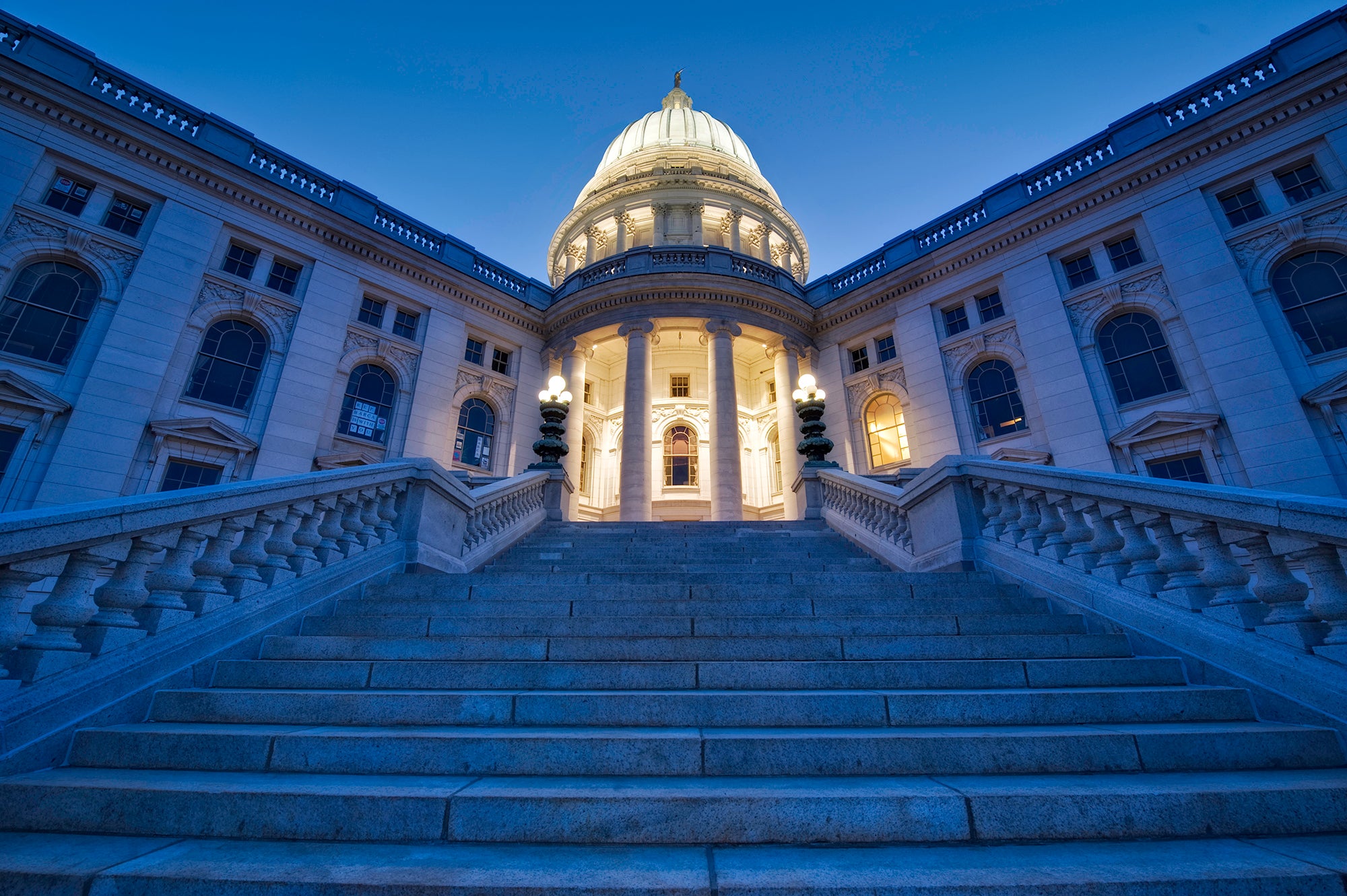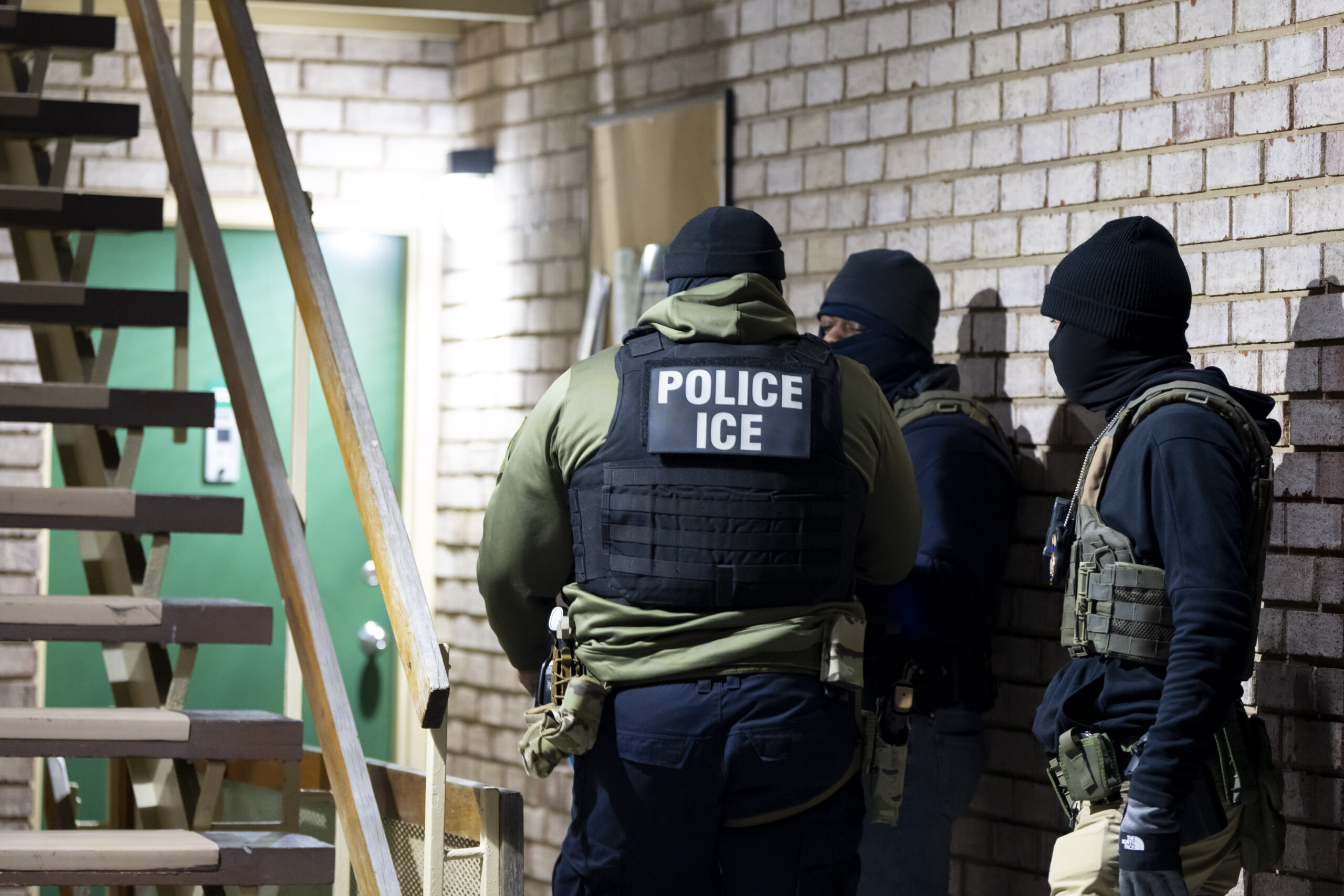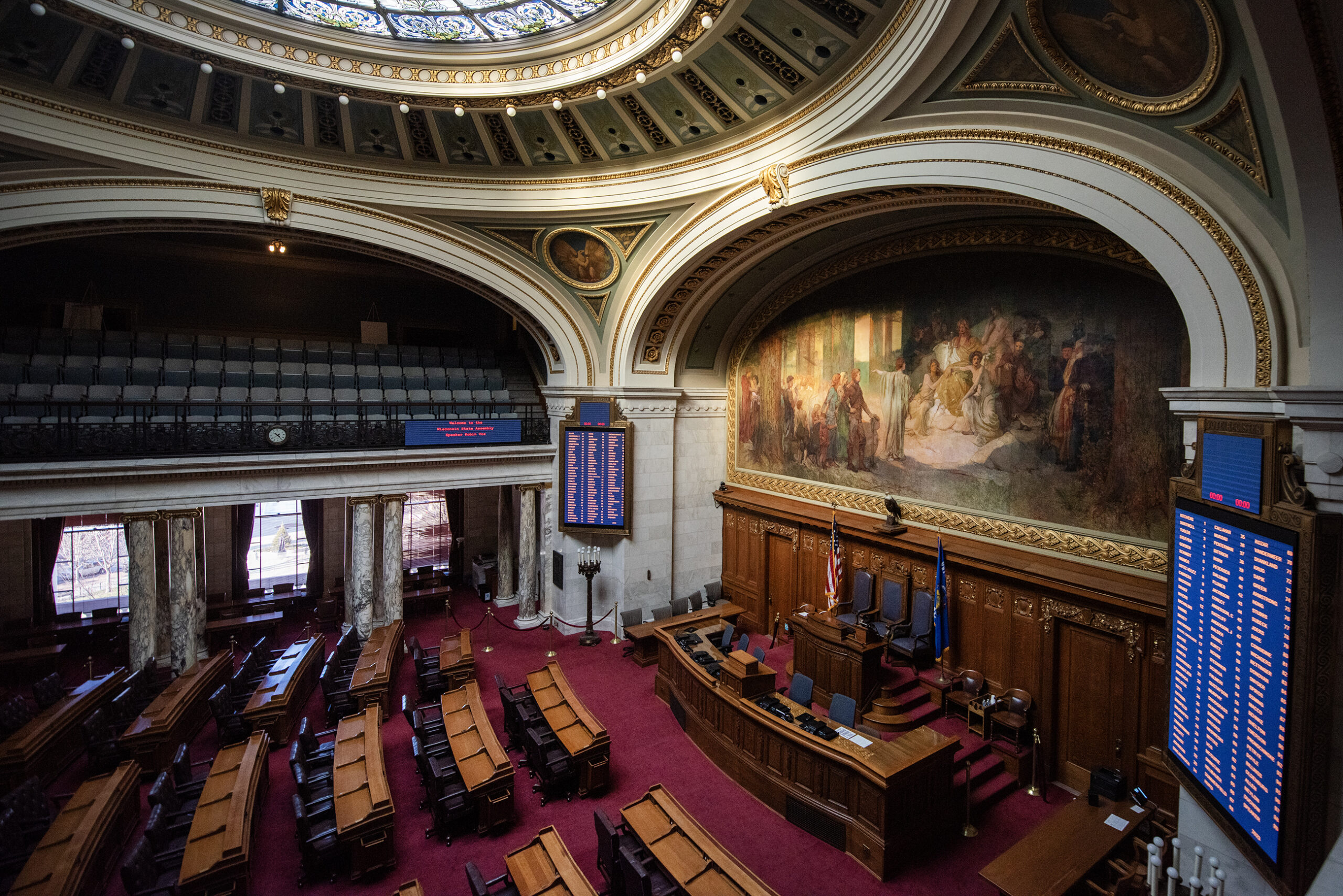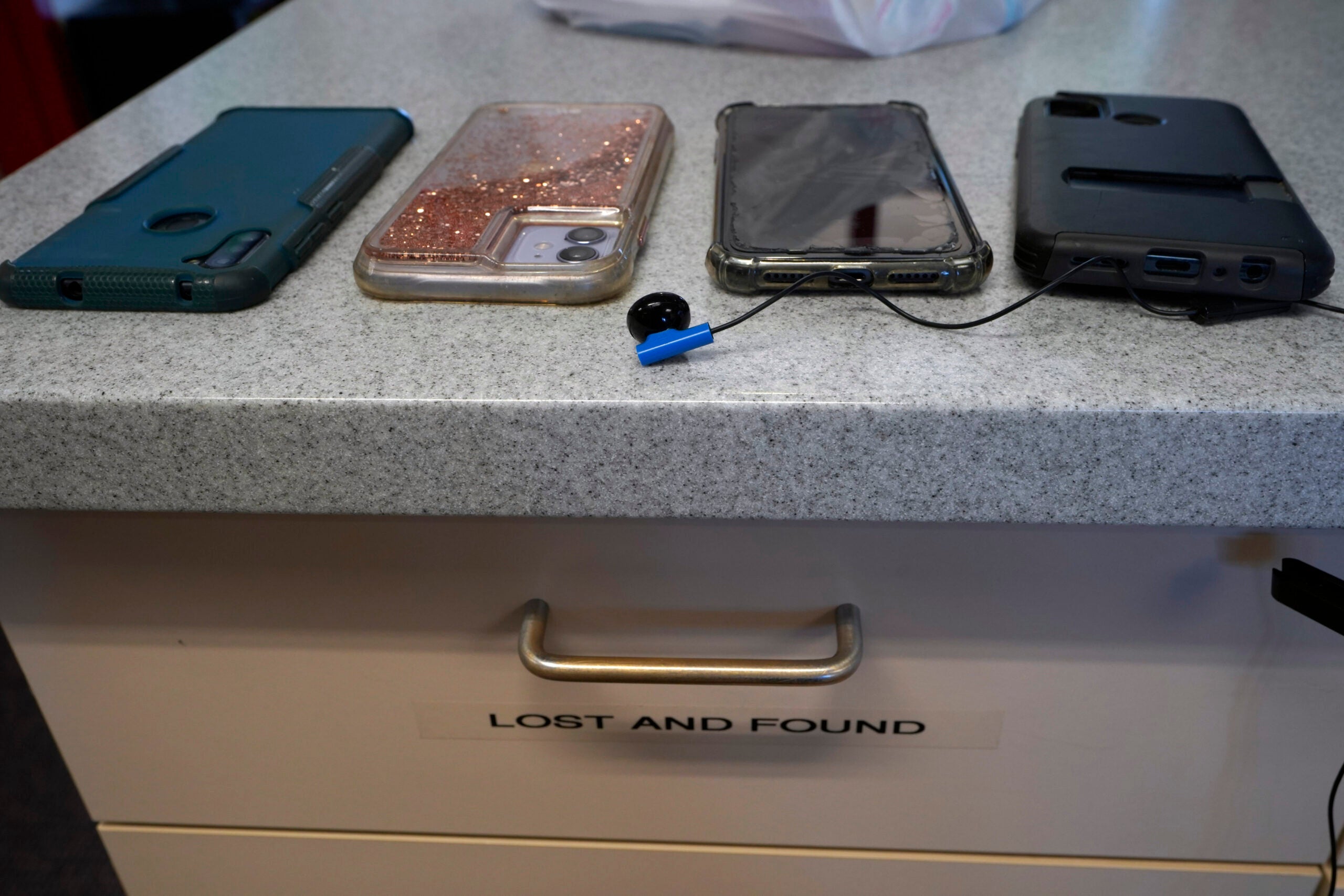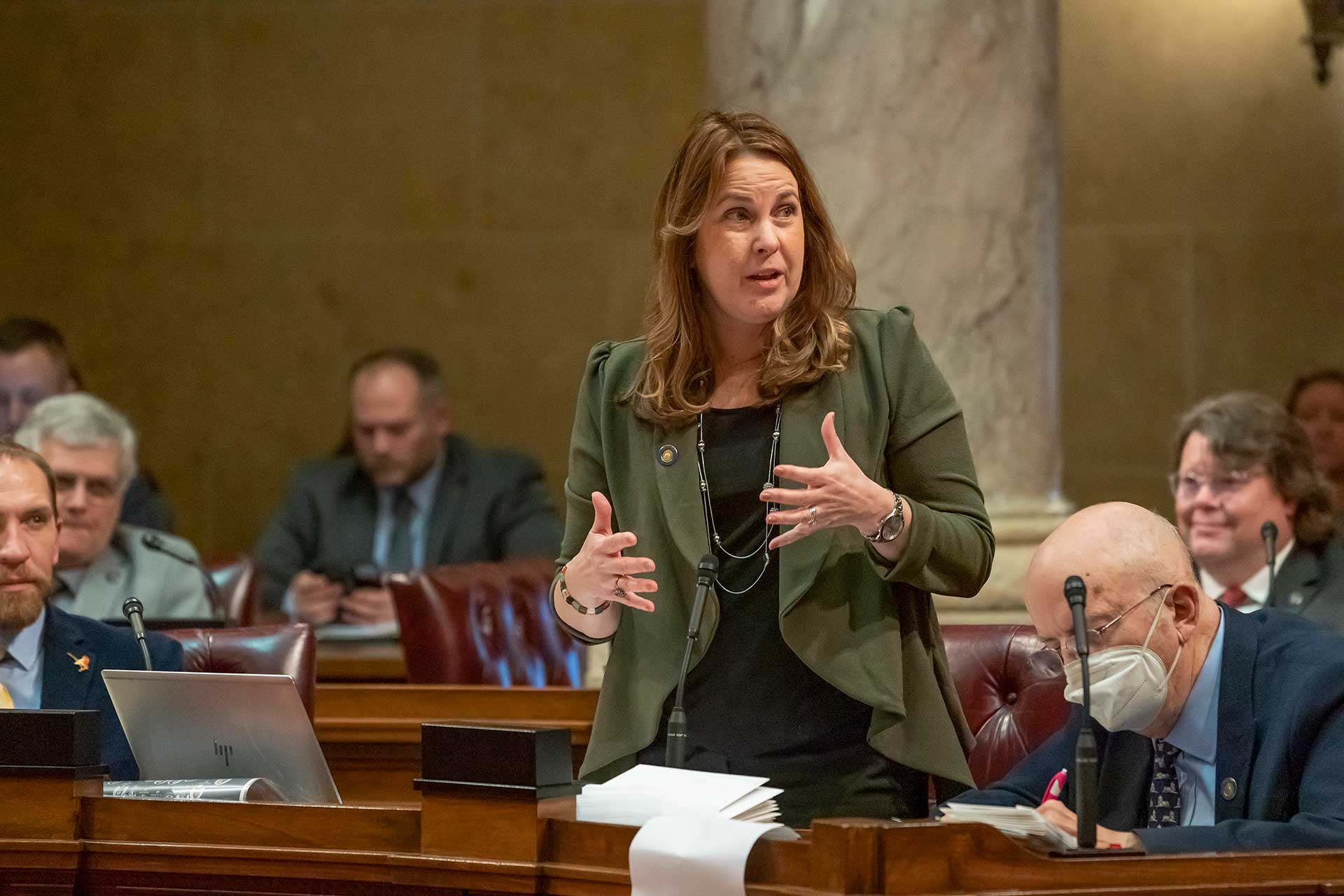Assembly lawmakers approved Wisconsin’s $76 billion state budget Wednesday, even as public infighting continues between Republicans who run state government.
The budget passed with a vote of 57-39.
Five Republicans — Rep. Scott Allen, of Waukesha, Rep. Janel Brandtjen, of Menomonee Falls, Rep. Bob Gannon, of West Bend, Rep. Adam Jarchow, of Balsam Lake, and Rep. Joe Sanfelippo, of New Berlin — joined Democrats in voting against the budget.
Stay informed on the latest news
Sign up for WPR’s email newsletter.
The majority of GOP lawmakers celebrated the spending plan, pointing out it includes a $639 million increase for K-12 public education funding and lowers property taxes.
Rep. John Nygren, R-Marinette, who co-chairs the budget committee, said the budget sends a message to taxpayers.
“We’re on your side rather than the side of government,” Nygren said. “At the end of the day, from every standpoint, taxpayers win.”
Democrats argued the spending plan doesn’t do enough for working people in Wisconsin.
“This Republican budget is rigged against the working people of Wisconsin, and it puts the wealthy donors and your political ideology ahead of the very people we are elected to represent,” said Rep. Lisa Subeck, D-Madison.
The budget does not include a proposed tax credit increase for low-income workers, and it would repeal Wisconsin’s prevailing wage for state construction projects.
“I think every one of us know that this budget is rigged against the working people of this state,” said Assembly Minority Leader Peter Barca, D-Kenosha.
Rep. Katrina Shankland, D-Stevens Point, echoed Barca’s statement.
“I think it speaks to who your donors are and who you listen to,” Shankland said. “It’s not your constituents. It’s not working families. It’s the rich.”
The budget now moves to the state Senate, where it faces an uncertain future.
Republican Sen. Majority Leader Scott Fitzgerald, of Juneau, said Wednesday he did not have the 17 votes he needed to pass the budget, with some of his GOP colleagues still pushing for changes to the plan.
The push for changes prompted a warning from Republican Assembly Speaker Robin Vos, who said he would not let individual senators start renegotiating the budget.
“We’re not going to be held hostage to individuals who have some kind of a wish list,” Vos, of Rochester, said. “Once we vote for the budget today, we are done with the budget process.”
Wisconsin’s budget is already two months past deadline, largely because of disagreements between Republicans over road funding.
The final budget, when combined with the state’s Foxconn incentives package, would borrow $402 million for transportation, which would be the lowest amount in more than a decade.
Out of that total, $252 million would be dedicated to expanding Interstate 94 south of Milwaukee. That would leave just $150 million to be spread thin between major projects throughout the rest of the state.
The budget would add a new $100 fee on electric vehicles and a $75 fee on hybrids, a move that would increase revenue for the state Department of Transportation by about $8 million. To put that figure in context, the expansion of Interstate 39/90 south of Madison to the Illinois border is projected to cost roughly $1.6 billion.
But the budget would not increase the gas tax or vehicle registration fee for roads, which would generate substantially more revenue. It also would not increase fees on heavy trucks, which do the most damage to roads.
Going back to last year, Assembly Republicans had insisted they wanted a long-term solution to transportation in this two-year budget. By that metric, Democrats said Republicans had fallen short.
“It’s a failure of leadership,” said Rep. Gordon Hintz, D-Oshkosh.
Speaking before the Assembly began its session Wednesday, Vos conceded he was not happy with the final transportation budget.
“You will not hear me say this again today, but the Democrats have a point,” Vos said. “This budget today ensures that the problem does not get worse under our watch. I take responsibility that we could not successfully negotiate a way to improve the long-term sustainability of the system.”
Walker has consistently opposed increasing taxes or fees to pay for roads, although he has said he supports the new fees on electric vehicles and hybrids.
During a conference call from South Korea on Wednesday, the governor said he was open to some of the changes being pushed by Senate Republicans, including one that would move up the elimination of the state’s prevailing wage to Jan. 1 or even sooner. The budget passed Wednesday would end the state prevailing wage in September 2018.
Vos pushed back against those ideas, urging Walker to leave the closing stages of the budget negotiations to lawmakers.
Fitzgerald said earlier Wednesday the full Senate could take up the budget Friday. If the Senate makes changes, they’d need to be approved by the Assembly, which could potentially delay the budget even more.
Vos said Wednesday night, just before the vote, that the Assembly “will not be coming back next week,” reiterating his stance that the Assembly will not take up any changes adopted by the Senate.
Editor’s Note: This story was last updated at 11:02 p.m. Wednesday, Sept. 13, 2017.
Wisconsin Public Radio, © Copyright 2025, Board of Regents of the University of Wisconsin System and Wisconsin Educational Communications Board.
